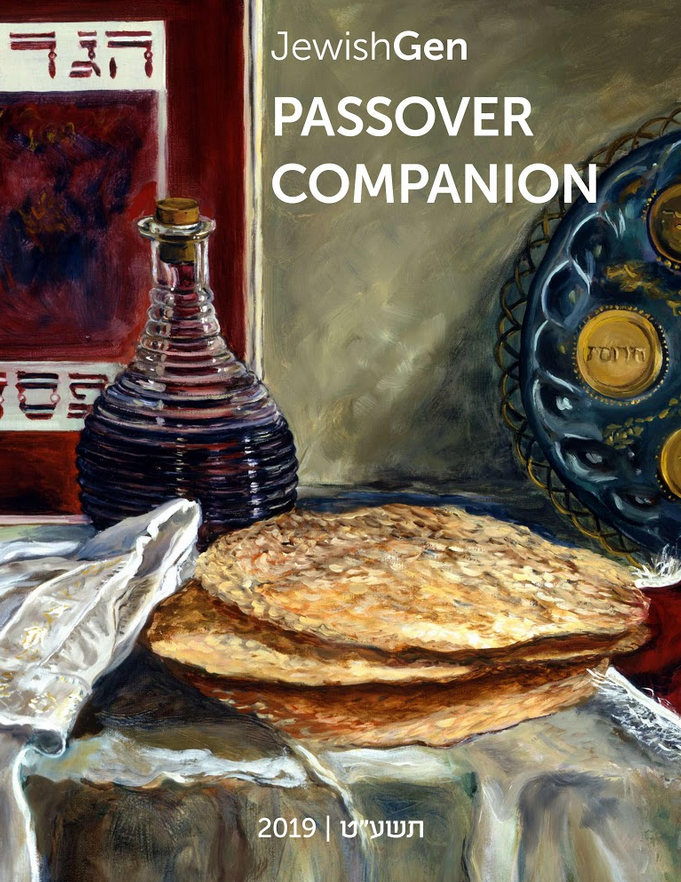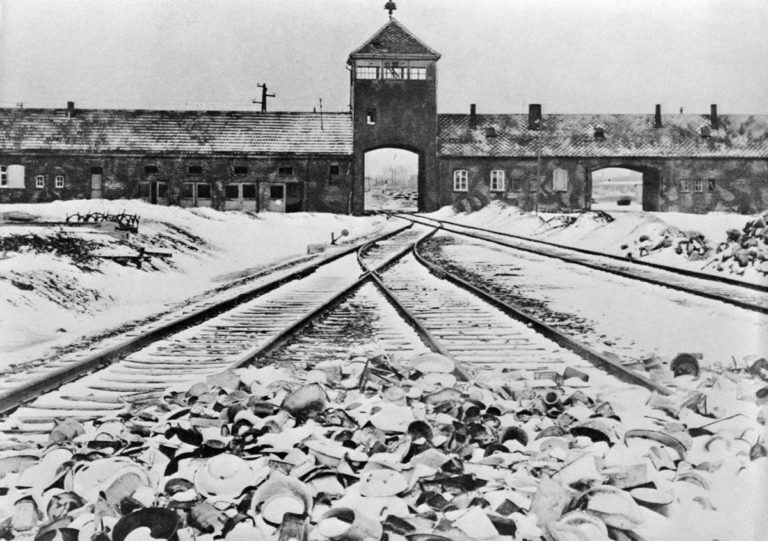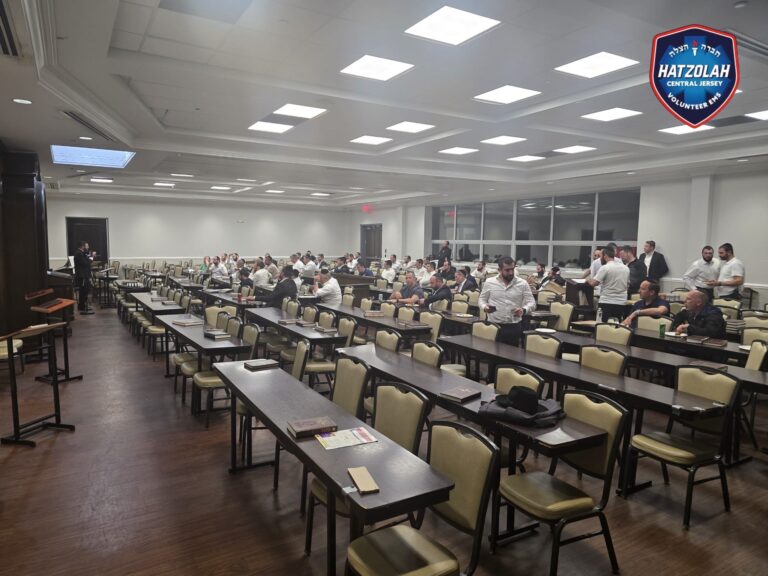PRINT THIS FOR THE SEDER:
The Unforgettable Passover of 1943 in Auschwitz-Birkenau
The following excerpt comes from the JewishGen Passover Companion 2019. It was written by Rabbi Chaim Yitzchak Greengrass, who describes how Jews imprisoned at Auschwitz-Birkenau managed to conduct a Seder. He writes: “The celebration of this Seder night left imprints on my soul. Now, when I perform the Passover service, I understand the meaning of the statement that each man in every generation is obliged to consider himself as if he personally was redeemed from slavery into freedom.”
THE Baal Haggadah says: B’chol dor v’dor chayav adam lirot et atzmo k’eelu hu yatza m’mitzrayim. “In every generation we are obliged to consider ourselves as having personally participated in the exodus from Egypt.” All my life I could not grasp the meaning of this passage until the advent of World War II.
Among the many experiences during the terrible period of time under the furious German Nazi rule in Europe, when millions of Jews, young and old, were mercilessly persecuted and destroyed, we, a group of Jews from all parts of Europe, made careful preparations to celebrate the Holiday of Freedom, Passover. Passover of 1943 was an experience that I shall remember always.
The observance of it took place at Birkenau near Auschwitz, one of the greatest annihilation camps, built by slaves to exterminate themselves and the innocent people that would follow. Planning and preparations started right after Purim. There were many things to be taken care of. The main problem was how to get the two most necessary items, matzoh and wine for the seder.
Greece, an independent, peaceful nation, was seized and brought under the terrifying Nazi yoke. Many Jews were living there, especially in the harbor city of Salonika They did not expect to be removed from their homes to be killed. They prepared matzot, raisins and other things for Passover. The Nazi machine took these unfortunate people out of their city just two weeks before their Holiday of Liberation.
Many transports of Jews, Squeezed into unbearable sealed freight cars unfit even for animal, reached the last station of their lives – Birkenau. Their total possessions were in the small package each tied on his or her shoulder, and they were accompanied by lovely children, many of whom were carried in the arms of the parents. They were separated from their poor worldly goods by force, and the parents and the children were sent to the gas chambers.
At that time, I was assigned to a special unit, called by the peculiar name of “Canada”, whose job was to assort the belongings of murdered Jews. Thus the worldly goods of the slain Greek Jews came to our place of work. We opened the miserable packages and to our surprise found hand-baked matzot, raisins, and other necessary Passover products carefully prepared for the Seder.
With trembling hands, knowing how meaningful these items were to the dying Jews, we hid them in a secret place to make good use of their sacred purpose. After hard and dangerous preparations in order not to be caught by the S.S. men, we finally accomplished our first task and hoped to celebrate the lovely Holiday of Freedom while being slaves in a concentration camp under the yoke of Nazi Germany.
Erev Passover 1943 was a very busy day for our special small group.
All products accumulated for the Seder and piled up at our working place had to be brought to the camp. There was great danger that the Nazi guard might search through the unit and confiscate all the things that we had so carefully saved, and in addition would administer severe punishment. Therefore, we needed the cooperation and help of our Cappo (group leader) who was also a Jew. He gladly accepted sharing the responsibility. He also advised us to make very small packages and to distribute them to many people, and he would see to it that everything reached the camp in the best order possible.
With joy and thanks to G-d that we had succeeded in our undertaking, we came to the camp. The profound holiness of Passover made us feel neither hunger nor weariness, although we had worked very hard all day without food. We did not touch anything that was prepared for us by the camp kitchen. Our block leader, a split personality and a Pole, was informed in advance of our intention to celebrate the Passover Seder, and he promised not to interfere with our observance. Nevertheless, we had to give him a big bribe beforehand, besides a share of our meager food.
When night fell and darkness covered the earth and no other light was permitted in the block, we managed to light several candles and distribute them among the people lying in the bunks. A man guarded the door in case an S.S. man should come unexpectedly. We filled the first cup and made kiddush by heart without any hagadot.
A young boy, twelve years of age, asked “Mah Nishtana” saying, “Why are we Jews different from other people?” Tears flowed from everyone’s eyes and question after question found each one pondering why it is so. And since we had no hagadot, each one tried to give his own interpretation of the eternal question of why do we Jews suffer so much more than any other nation. Some brought out the idea that the Maror (bitterness) that we suffered is due to the fact that we tried to run from one Galut (place of exile) to another Galut because we thought that what happened to our brethren yesterday will not reach us in the new places today.
All night long we were discussing the history of our people and what we expected in the future and what would happen if some of us would come out alive. No one slept and all celebrated the Pesach the entire night with tears and hopes. The discussion did not end until the gong rang that it was time to get up and go to work. And as it rang, we wished each other that we live to come out of this hell and again celebrate the Passover as free people.
The celebration of this Seder night left imprints on my soul. Now, when I perform the Passover service, I understand the meaning of the statement that each man in every generation is obliged to consider himself as if he personally was redeemed from slavery into freedom. I have some garments which I wore that Passover as a reminder of Moror, “ze sh’anu ochlim, al shum mah.” This garment that I keep, why? Because of the Holocaust that befell the Jewish People during
World War II.
This excerpt came from the JewishGen Passover Companion 2019. Please click here to download the entire file before your Seder!
*This article originally appeared in the Jewabne, Poland Yizkor Book, which JewishGen has translated into English.
About JewishGen.org
JewishGen, a signature program of the Museum of Jewish Heritage – A Living Memorial to the Holocaust, serves as the global home for Jewish genealogy. Featuring unparalleled access to 30+ million records, it offers unique search tools, along with opportunities for researchers to connect with others who share similar interests.
Award winning resources such as the Family Finder, Discussion Groups, and ViewMate, are relied upon by thousands each day. In addition, JewishGen’s extensive informational, educational and historical offerings, such as the Jewish Communities Database, Yizkor Book translations, InfoFiles, and KehilaLinks,
provide critical insights, first-hand accounts, and context about Jewish communal and familial life throughout the world.
Offered as a free resource, JewishGen.org has facilitated thousands of family connections and success stories, and is currently engaged in an intensive expansion effort that will bring many more records, tools, and resources to its collections. For more information, and to get started with your research,
please visit www.JewishGen.org.











